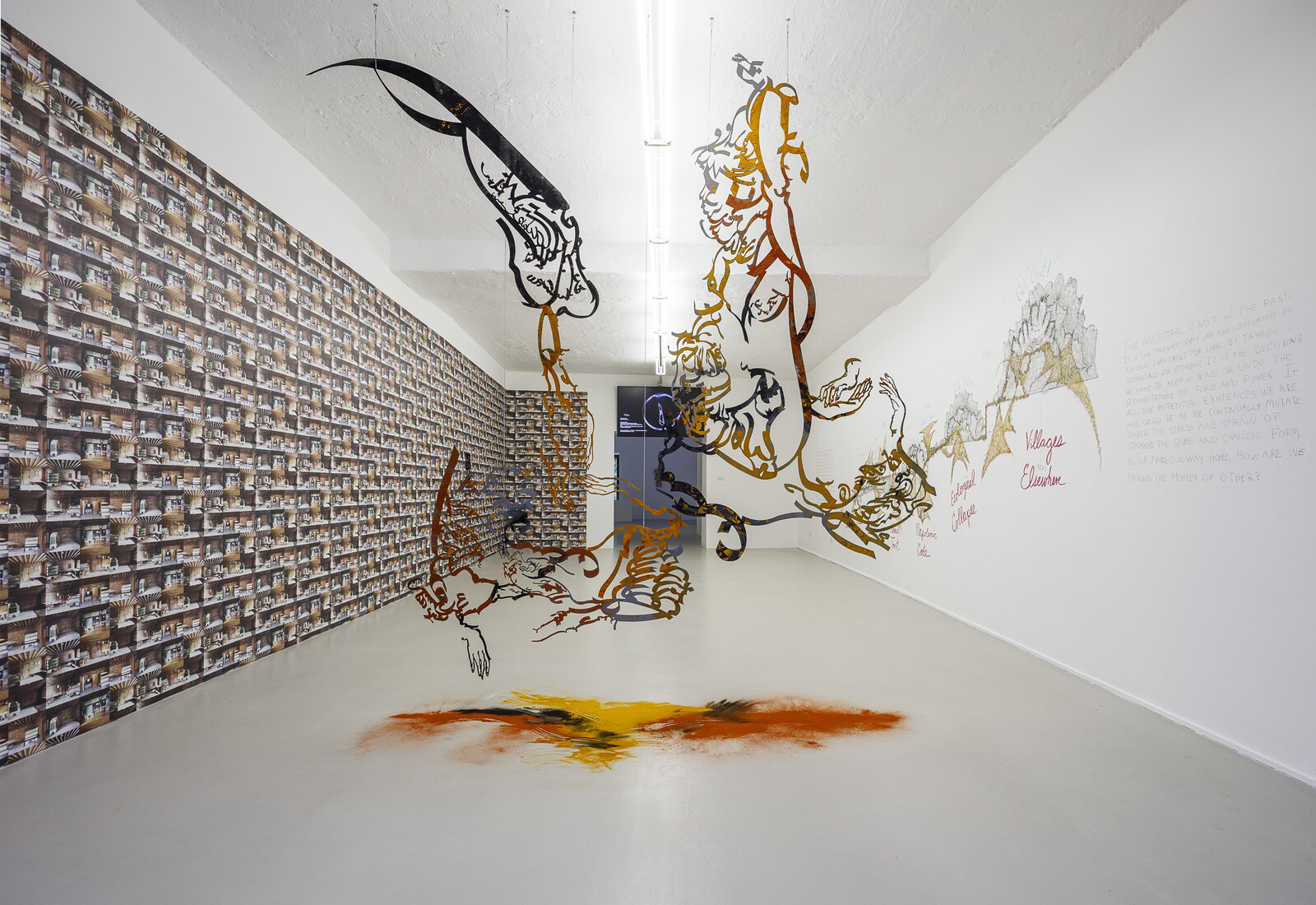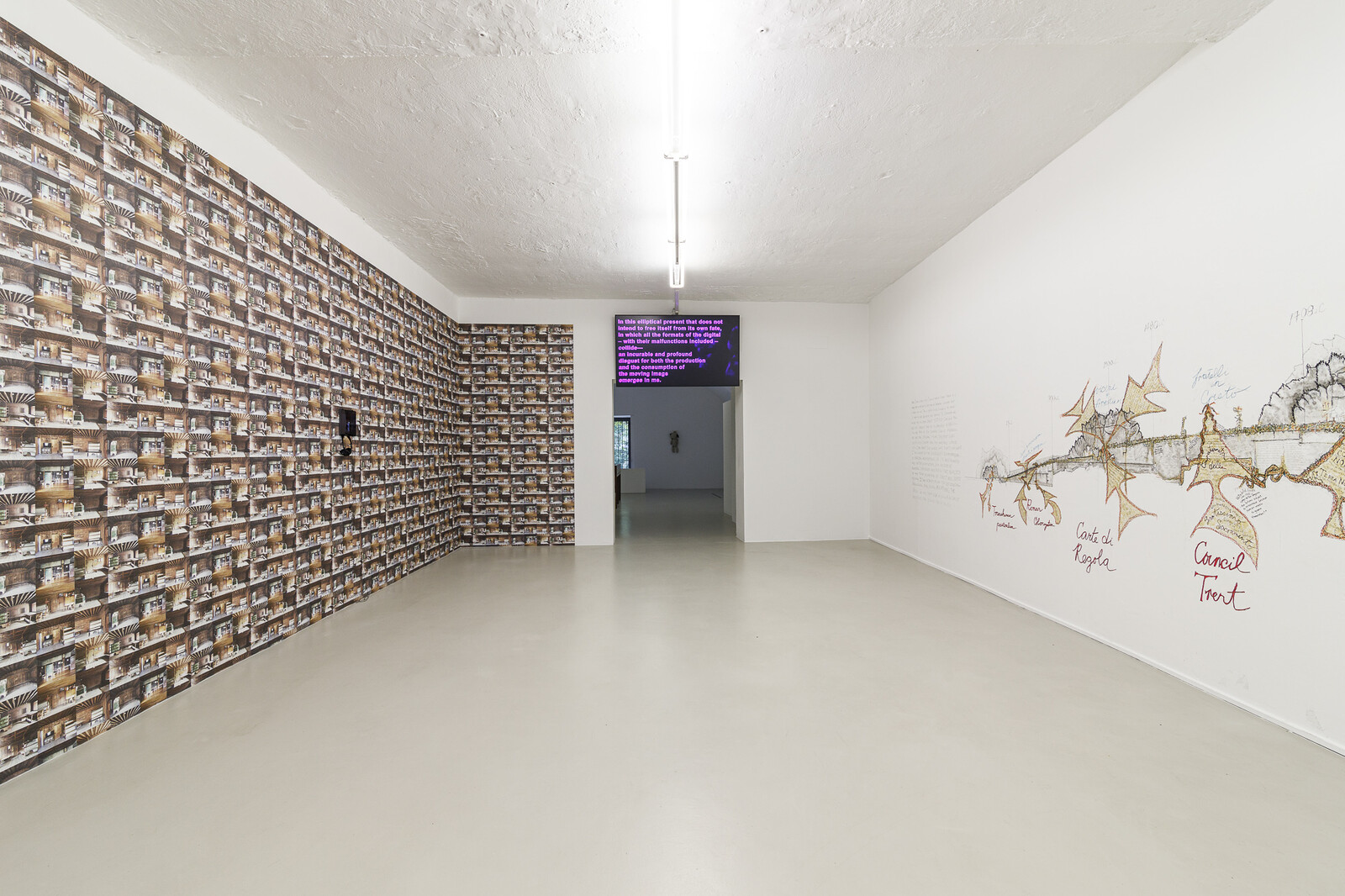September 14–November 5, 2022
November 18, 2022–February 4, 2023
Via Museo 29
39100 Bolzano
Italy
Hours: Tuesday–Friday 10am–7pm,
Saturday 10am–1pm
T +39 0471 971601
info@argekunst.it
ar/ge kunst presents The Lying Body: Only the Futures Revist the Past and Correspondences: About Henry Martin. The exhibitions move from and tell about two stories rooted in South Tyrol at the beginning of the 1970s. Director Pier Paolo Pasolini’s work and writer, translator and curator Henry Martin’s life choice embody two ways of seeing and inhabiting the rural landscape, through fiction, poetry and critique. From these premises, the exhibitions unfold through questions that resonate with our present times.
September 14–November 5, 2022
The Lying Body: Only the Futures Revist the Past
with Alexandra Anikina, Riccardo Benassi, Monia Ben Hamouda, Dorota Gawęda and Eglė Kulbokaitė, Walter Niedermayr, Elizabeth A. Povinelli.
Curated by Emanuele Guidi
In 1971 Pier Paolo Pasolini filmed a confession and death scene in a 15th Century timber-clad room (Stube)—currently still conserved at the Bolzano’s Civic Museum—as part of his screen adaptation of Bocaccio’s The Decameron: a sinner lies to his friar-confessor on his deathbed and by means of lying reaches beatification and becomes an object of worship.
The exhibition takes its cue from this episode, shot a few steps away from ar/ge kunst, to open up some questions concerning the role of museums and cultural institutions as places of preservation and transmission of histories, as sites of fictions and construction of narratives, as thresholds between life and the afterlife—reliquaries where once-alive objects, bodies and rituals exist today as relics and receptacles vessels of future desires.
Pasolini praised the Civic Museum for in it “love for tradition is grace” and understood it as place of resistance against neo-capitalist forces and consumerism, actualizing and transposing Boccaccio’s critique to dominant powers. It is a radical vision of history as a place of conflict but also as a nostalgic view on a long gone pre-modern life that the film director problematically identified in the rural regions and populations as well as in the museums that were meant to preserve them; ideas that he would end up contradicting through the fiction in his films.
The Lying Body: Only the Futures Revisit the Past follows the multiple trajectories suggested by the invited artists with whom this story has been shared. Often originating from personal memories, the works in the exhibition mobilize histories, traditions and body-knowledges within the present. Through them, the artists design genealogies and connect distant generations. They produce continuity between natural and technological landscapes to ask how—to paraphrase anthropologist Elizabeth A. Povinelli—certain past and ancestral knowledges can be resituated and can make sense in a radically transformed environment. Concurrently, they confront and exorcise the haunting presence of death that permeates the current Capitalocene.
November 18, 2022–February 4, 2023
Correspondences: About Henry Martin
Exhibition design by Martino Gamper
Curated by Emanuele Guidi
In 1971, Afro-American author, critic, translator and curator Henry Martin (b. Philadelphia, 1942) moved to Völser Aicha, an alpine hamlet in South Tyrol where he spent the rest of his life.
This exhibition represents an opportunity to study and pay homage to Henry Martin who, from his “rural refuge”, became a privileged interlocutor of many US and Italian artists for over fifty years, namely the most relevant figures from the Fluxus, Arte Povera and Conceptual Art movements.
The exhibiting project will include artists’ books, artworks, letters and life traces that testify to Martin’s extensive correspondence with artists such as Ray Johnson, Gianfranco Barruchello, Geoffrey Hendricks, George Brecht, Michelangelo Pistoletto, Alighiero Boetti and his life partner Berty Skuber, among others.
The Lying Body: Only the Futures Revisit the Past is kindly supported by The Swiss Arts Council Pro Helvetia.
The programm of ar/ge kunst is made possible thanks to: Provincia Autonoma di Bolzano, Ripartizione Cultura / Comune di Bolzano, Ripartizione Cultura / Fondazione Cassa di Risparmio, Sudtirolo / Regione Autonoma Trentino – Alto Adige









